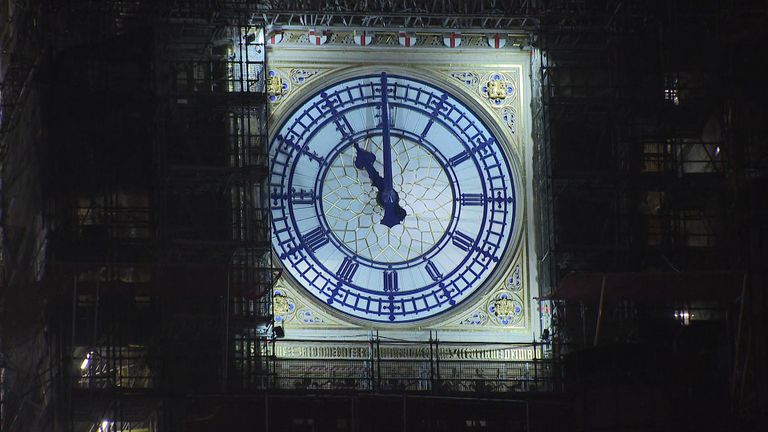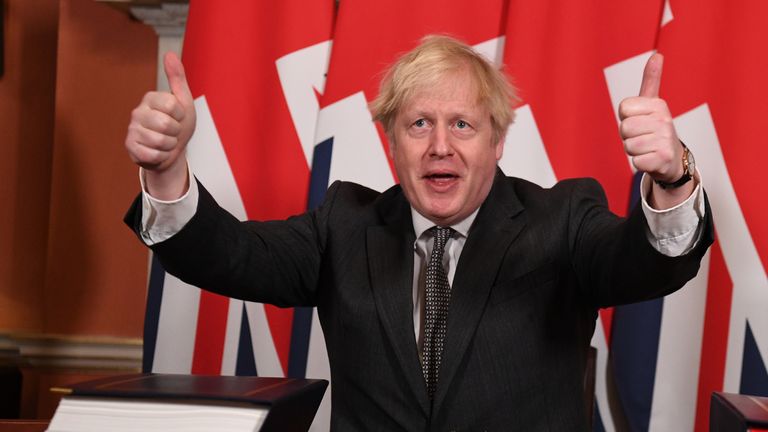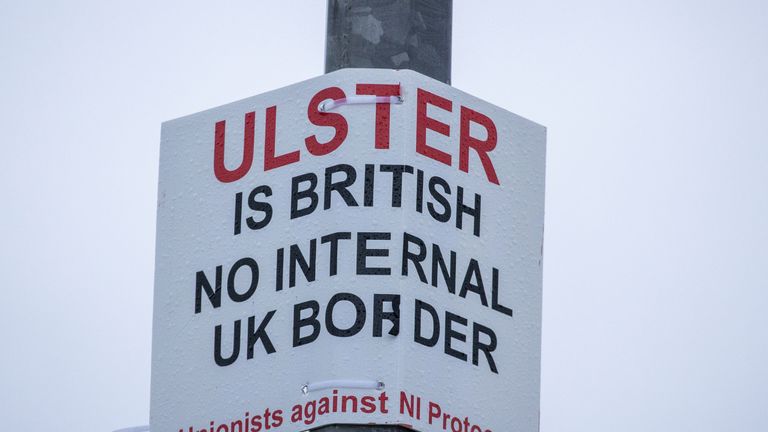The UK’s decision to leave the EU five years ago will allow the country to “seize” its true potential when recovering from the pandemic, Boris Johnson has said.
Marking half a decade to the day that UK voted to leave the bloc in a knife-edge referendum result, the Prime Minister said Brexit will act as a spur to jobs and renewal across the UK as the country builds back following COVID-19.
On 23 June 2016, 51.9% of voters were in favour of leaving the EU, with 48.1% wanting to remain.
In a statement to mark the anniversary of the referendum on Wednesday, the PM said it is his “mission” to use the freedoms gained by Brexit to deliver a more prosperous future for the British people.
“This government got Brexit done and we’ve already reclaimed our money, laws, borders and waters,” Mr Johnson, who spearheaded the Vote Leave campaign, said.
“Now as we recover from this pandemic, we will seize the true potential of our regained sovereignty to unite and level up our whole United Kingdom.
“With control over our regulations and subsidies, and with freeports driving new investment, we will spur innovation, jobs and renewal across every part of our country.
“The decision to leave the EU may now be part of our history, but our clear mission is to utilise the freedoms it brings to shape a better future for our people.”
But pro-Europe former deputy prime minister Lord Heseltine warned that leaving the bloc has left an “ominous” outlook for the UK.
President of the European Movement Lord Heseltine said Brexit is the “very opposite” of what the country needs as it recovers from the pandemic.
“Five years on, Brexit is far from ‘done’. It has only just begun and the forecast is ominous,” he said.
“Storm clouds are gathering on the horizon, chief among them the threat to the Good Friday peace agreement in Northern Ireland.
“The fishing industry has now voiced its betrayal and the Australian trade deal will slowly erode the competitiveness of British farmers over the next 15 years.
“Meanwhile, the financial services industry quietly moves its activities to Europe in order to escape the continuing Brexit uncertainty.”
And shadow Northern Ireland secretary Louise Haigh blamed Mr Johnson’s Brexit deal for the current unrest in Northern Ireland.
“There is a direct line from the prime minister’s dishonesty over the deal he negotiated, to the instability we see in Northern Ireland today,” she said.
“The prime minister pledged never to put barriers down the Irish Sea and then a few months later did exactly that – this dishonesty is still having real consequences.”
The referendum five years ago on Wednesday sparked an economic and political earthquake.
Shortly after the result came through, then prime minister David Cameron announced his intention to resign.
The UK finally left the EU after 47 years at the end of January 2020 – almost four years on from the referendum.
A light show illuminated Downing Street when the clock struck 11pm, with a mixture of celebration and regret across Britain on a landmark day.
The PM hosted a reception in Number 10 for cabinet ministers, advisers and civil servants, officials who were involved in the negotiations, and supporters of the Leave campaign.
And hundreds of Brexit supporters gathered for a party led by Nigel Farage on Parliament Square.
Meanwhile, in Brussels, the UK flag was removed from its flagpole outside the European Parliament.



